Francis

Brief Synopsis
Cast & Crew
Arthur Lubin
Donald O'connor
Patricia Medina
Zasu Pitts
Ray Collins
John Mcintire
Film Details
Technical Specs

Synopsis
When bank teller Peter Stirling draws whispers and funny looks from his customers, bank manager Munroe asks him to explain. Stirling states that it all began when he was stationed in Burma: Second Lieutenant Stirling is separated from his platoon behind Japanese lines, and there he encounters Francis, a talking Army mule. Francis carries the wounded Stirling to safety, but after Stirling credits the mule with his rescue, he is committed to the neuropsychiatric ward and assigned to make baskets under the watchful eye of his nurse, Valerie Humpert. Eventually, Stirling admits that he must have been mistaken and is released to active duty. Soon after, Maureen Gelder, a beautiful French woman, is given sanctuary on the base. She tells the officers that she was separated from her father when the Japanese invaded. Then Stirling, who has absolutely no qualifications, is assigned to duty as a clerk in the Intelligence department. The next day, Stirling finds a message from Francis on his desk. Not knowing that the other men put it there as a joke, Stirling rushes off to see the mule. At first, Francis refuses to talk to Stirling, but then reveals that the Japanese have set up an observation post nearby and suggests that Stirling capture it with his help. That night, Francis leads a terrified Stirling to the post, and they capture the two Japanese who are manning it. Later, the commander demands to know how Stirling learned about the post, and when he says Francis told him, he winds up back on the psychiatric ward. The psychiatrist diagnoses battle fatigue and recommends activity. When Stirling is assigned to lead a group of soldiers searching for a Japanese patrol, Francis again provides help. On the mule's advice, the men set a trap for the Japanese, and Stirling is returned to the psychiatric ward. He is visited by Maureen, who seems romantically interested in him, and tells her about Francis. Francis now tells Stirling that enemy bombers will attack the base at a specific time. Stirling frantically tries to convince the commander to prepare. Eventually, because of Stirling's past record, the commander accedes to his demands. After the Japanese attack, Stirling credits Francis and is forced to take up basket weaving on the psychiatric ward. One day, Stirling is visited by Commanding General Stevens. Determined to finally prove his sanity, Stirling drags Stevens to see Francis, who refuses to speak. Stirling then suggests that as Francis is an Army mule, he might speak if Stevens ordered him to do so. After Francis finally speaks, Stevens apologizes to Stirling and orders him to be released from the hospital. Later, over Tokyo radio, a woman makes fun of the soldiers for believing in a talking mule. The press arrive, and Stevens orders Stirling to bring Francis to meet them. Meanwhile, the officers try to figure out how the Japanese learned about Francis. Stirling reveals that Maureen knew about the mule. Colonel Hooker, Stirling's immediate supervisor, then explains that they suspected Maureen was a spy and purposely assigned a naïve officer to trap her. When Maureen accuses Stirling of passing the information to the enemy, Francis speaks in his defense. Later, Francis is flown to Washington. When his plane crashes over Kentucky, the crew parachutes to safety, but Francis refuses to leave. Stirling tells Munroe that he then searched Kentucky until he found Francis, who is now living with him. When Munroe expresses his incredulity, Stirling brings him home to meet Francis.

Director
Arthur Lubin
Cast
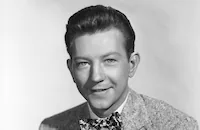
Donald O'connor
Patricia Medina

Zasu Pitts
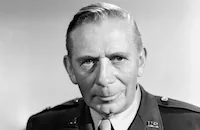
Ray Collins
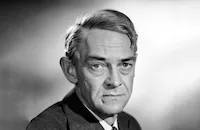
John Mcintire

Eduard Franz
Howland Chamberlin

James Todd
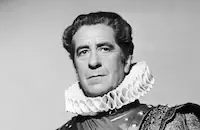
Robert Warwick
Frank Faylen
Francis

Anthony Curtis
Mikel Conrad
Loren Tindall
Charles Meredith
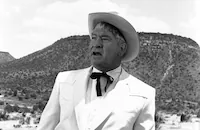
Chill Wills
Harry Harvey
Peter Prouse
Roger Cole
James Linn
Howard Negley
Duke York
Robert Conte
Joseph Kim
Robert Anderson
Jack Shutta
Judd Holdren
J. Robert Blunt
Tim Graham
Ted Jordan
Jim Hayward
Al Ferguson

Marvin Kaplan
Fraser Mcminn
Laura Kasley Brooks
Harold Fong
Alexander Tafroff
Mickey Mccardle
Richard Farmer
Grey Stafford
Jon Riffel
Jack Laird

Roger Moore
David Alison
Crew
Robert Arthur
Hal Belfer
Leslie I. Carey
Milton Carruth
Eddie Dodds
A. Roland Fields
Russell A. Gausman
Irving Glassberg
Joan Hathaway
Bernard Herzbrun
David S. Horsley
Corson Jowett
Major M. H. Lencer
Rosemary Odell
Richard H. Riedel
John Sherwood
Frank Skinner
Joan St. Oegger
David Stern
Bud Westmore

Film Details
Technical Specs

Articles
Francis
Several of the films in the Francis series, and particularly this initial entry, featured a military setting and for good reason. The concept came from the 1945 book Francis, by David Stern, which was a collection of stories Stern had written while in the service. Stern, the son of New York Post publisher J. David Stern and a longtime newspaperman himself, was an Army private (eventually rising to the rank of captain) stationed in the Pacific. His Francis stories of a talking Army mule were intended to satirize the stubborn and occasionally wrong-headed thinking of the Army brass. With his book a bestseller, Stern was brought to Hollywood to write the screenplay for the film, and he stayed on to contribute to most of the Francis sequels.
Francis manages to tell a single straightforward narrative which eliminates most of the satire of the book, and which follows its own logic...once the premise of a talking mule is bought, that is! Peter Stirling (Donald O'Connor) is working as a bank clerk in a small town in the years after the war. Customers make a wide circle around his teller window, however, so the bank president calls him in to discuss the rumors that are whispered about him. Stirling then tells the bulk of the story in flashback: During the war, he was a Second Lieutenant stationed in the Pacific. On Burma, he is separated from his unit during a firefight with the Japanese, and wounded in the leg, but saved by Francis (voice of Chill Wills), a talking Army mule. When Stirling tells others of his benefactor, he is sent to a psychiatric ward where, under the care of Nurse Humpert (Zasu Pitts), he is soon weaving baskets. He is released and assigned to the Intelligence division. He awkwardly falls into a relationship with Maureen Gelder (Patricia Medina), a French woman stranded on the island; meanwhile Francis feeds him confidential information about the Japanese troop movements. Stirling eventually gains the trust of Army brass, including General Stevens (John McIntyre), although every attempt to explain Francis returns him to a stint weaving baskets.
One problem facing the filmmakers was in having Francis' mouth move for the talking sequences. In the early 1940s, Paramount Pictures released a few shorts in a series called Speaking of Animals, in which live-action shots of animals were manipulated with superimposed animated lips. This series was the brainchild of animator Tex Avery, who produced the shorts following his departure from Warner Bros. and before beginning his long stint at MGM. For Francis, veteran animator Dave Fleisher was brought in to assist with the lip-synch problems. There appear to be a few instances of animation added post-production, but for the most part, the lip-synch was achieved by selective use of editing and by over-printing certain frames in a sequence, to create "holds" which would better match the soundtrack. The mule's lips were made to move on the set by putting a thread in the animal's mouth; the mule then moved its lips while dislodging the thread. The over-printing of frames made for some jerky shots in Francis, and this method was avoided in subsequent films in the series. Through trial-and-error, the filmmakers became more careful to get proper shots on the set to avoid post-production which forced the lip-synch. More successful in Francis are the scenes of the mule reacting silently; the animal always seems to keep the correct eyeline with the people speaking to it, and on occasion it even seems to execute some perfect comedic "takes"!
Given its military setting, it seemed appropriate to show Francis to American troops, so a month before the movie opened in the United States, it was shown at Army posts in Germany, in January, 1950. In 1951, Francis was the first movie to win a PATSY (Picture Animal Top Star of the Year) Award, presented by the American Humane Association in recognition of outstanding animal performances in film. (Francis won the 2nd place award in 1952, 1953, 1954, 1955, and 1956, followed by a 3rd place win in 1957). Francis was actually played by a mule named Molly, trained by Les Hilton. According to Pauline Bartel, author of Amazing Animal Actors, Universal bought the mule for a cool $350, making Francis one of the best bargains in 1950s movie stardom.
Francis became a durable film series for Universal. O'Connor, Wills, and director Lubin stayed on for five sequels. The seventh and final film, Francis in the Haunted House (1956) is the oddball in that Mickey Rooney takes over the lead role, comedy veteran Charles Lamont pulls directing duty, and even the voice of Francis is different Paul Frees attempts a Chill Wills impression. Kids couldn't get enough of Francis in the early 1950s, though, and there was a comic book called Francis the Famous Talking Mule, published by Dell, which lasted for 17 issues. A newspaper comic strip also emerged, credited to writer Stern, along with co-writer Frank Thomas and artist Cliff Rogerson; the strip only lasted two years. By far the most successful Francis "spin-off" was unauthorized. Series director Lubin took the basic concept and applied it to a horse and his gentleman farmer owner, creating the TV series Mr. Ed in 1961. Starring Alan Young as Wilbur Post, Mr. Ed ran on CBS for six seasons.
Producer: Robert Arthur
Director: Arthur Lubin
Screenplay: David Stern, based on his novel
Cinematography: Irving Glassberg
Film Editing: Milton Carruth
Music: Frank Skinner
Art Direction: Bernard Herzbrun, Richard H. Riedel
Costume Design: Rosemary Odell
Special Effects: David S. Horsley
Cast: Donald O'Connor (Peter Stirling), Patricia Medina (Maureen Gelder), Zasu Pitts (Nurse Valerie Humpert), Ray Collins (Col. Hooker), John McIntyre (Gen. Stevens), Eduard Franz (Col. Plepper), Howland Chamberlain (Maj. Nadel), James Todd (Col. Saunders), Robert Warwick (Col. Carmichael), Frank Faylen (Sgt. Chillingbacker), Tony Curtis (Capt. Jones), Chill Wills (Voice of Francis).
BW-91m.
by John M. Miller

Francis
Donald O'Connor, 1925-2003
Born Donald David Dixon O' Connor in Chicago on August 28, 1925, he was raised in an atmosphere of show business. His parents were circus trapeze artists and later vaudeville entertainers, and as soon as young Donald was old enough to walk, he was performing in a variety of dance and stunt routines all across the country. Discovered by a film scout at age 11, he made his film debut with two of his brothers in Melody for Two (1937), and was singled out for a contract by Paramount Pictures. He co-starred with Bing Crosby and Fred MacMurray in Sing, You Sinners (1938) and played juvenile roles in several films, including Huckleberry Finn in Tom Sawyer - Detective (1938) and the title character as a child in Beau Geste (1939).
As O'Connor grew into adolescence, he fared pretty well as a youthful hoofer, dancing up a storm in a string of low-budget, but engaging musicals for Universal Studios (often teamed with the equally vigorous Peggy Ryan) during World War II. Titles like What's Cookin', Get Hep to Love (both 1942), Chip Off the Old Block and Strictly in the Groove (both 1943) made for some fairly innocuous entertainment, but they went a long way in displaying O'Connor's athletic dancing and boyish charm. As an adult, O'Connor struck paydirt again when he starred opposite a talking mule (with a voice supplied by Chill Wills) in the enormously popular Francis (1949). The story about an Army private who discovers that only he can communicate with a talking army mule, proved to be a very profitable hit with kids, and Universal went on to star him in several sequels.
Yet if O'Connor had to stake his claim to cinematic greatness, it would unquestionably be his daringly acrobatic, brazenly funny turn as Cosmo Brown, Gene Kelly's sidekick in the brilliant Singin' in the Rain (1952). Although his self-choreographed routine of "Make "Em Laugh" (which includes a mind-bending series of backflips off the walls) is often singled out as the highlight, in truth, his whole performance is one of the highlights of the film. His deft comic delivery of one-liners, crazy facial expressions (just watch him lampoon the diction teacher in the glorious "Moses Supposes" bit) and exhilarating dance moves (the opening "Fit As a Fiddle" number with Kelly to name just one) throughout the film are just sheer film treats in any critic's book.
After the success of Singin' in the Rain, O'Connor proved that he had enough charisma to command his first starring vehicle, opposite Debbie Reynolds, in the cute musical I Love Melvin (1953). He also found good parts in Call Me Madam (1953), There's No Business Like Show Business (1954), and Anything Goes (1956). Unfortunately, his one attempt at a strong dramatic role, the lead in the weak biopic The Buster Keaton Story (1957) proved to be misstep, and he was panned by the critics.
By the '60s, the popularity of musicals had faded, and O'Connor spent the next several years supporting himself with many dinner theater and nightclub appearances; but just when it looked like we wouldn't see O'Connor's talent shine again on the small or big screen, he found himself in demand at the dawn of the '90s in a string of TV appearances: Murder She Wrote, Tales From the Crypt, Fraser, The Nanny; and movies: Robin Williams' toy-manufacturer father in Toys (1992), a fellow passenger in the Lemmon-Matthau comedy, Out to Sea (1997), that were as welcoming as they were heartening. Survivors include his wife, Gloria; four children, Alicia, Donna, Fred and Kevin; and four grandchildren.
by Michael T. Toole
Donald O'Connor, 1925-2003
Quotes
Trivia
Notes
Before its release in the United States, Francis was shown to Army troops stationed in Germany in January 1950. A December 4, 1949 Hollywood Reporter news item reported that Universal was negotiating with Andy Devine for a major role. Francis the mule was signed to a seven-year contract with Universal, according to an article in Newsweek. Before his film career began, he was chosen the official mascot of the national Democratic Party. Newsweek also reported that Francis' entourage included "a make-up man, trainer, hairdresser, and sanitary engineer, complete with broom and Airwick." On February 23, 1950, Hollywood Reporter reported that director Arthur Lubin had closed a deal with Irving Mills Publishing Co. to publish a song entitled "Francis, the Talking Mule" for publicity purposes. The Harvard Lampoon honored Francis the mule with a "Yakademy Award" for "the most sincere performance to come out of Hollywood," and Francis won the first-ever PATSY award as 1951's Performing Animal Top Star of the Year.
Universal made six more pictures featuring "Francis." Donald O'Connor played "Peter Stirling," Chill Wills provided the mule's voice and Arthur Lubin directed for all but the final film, the 1956 release Francis in the Haunted House. In that film, Mickey Rooney played Francis' friend, "David Prescott"; Paul Frees supplied Francis' voice and Charles Lamont directed. Lubin later created the television series Mr. Ed, the Talking Horse.

Miscellaneous Notes
Released in United States Winter February 1950
Released in United States Winter February 1950














